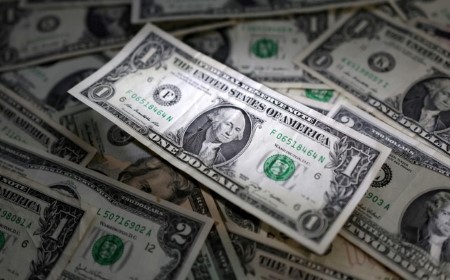




Philippines Trade Update: Imports weaken on tepid demand
 DOWNLOAD
DOWNLOAD

Policy Rate Updates: BSP outlook — cloudy with a chance of rate cut
 DOWNLOAD
DOWNLOAD

January Economic Update: Growth slows, prices rise
 DOWNLOAD
DOWNLOAD


US yields stable ahead of US presidential debate, inflation data

NEW YORK – US Treasury yields were roughly unchanged on Tuesday ahead of a US presidential candidates’ debate and before Wednesday’s release of inflation data, which could fuel speculation on the size of the Federal Reserve’s first interest rate cut.
Republican US presidential candidate Donald Trump and Democratic Vice President Kamala Harris will meet in their first and perhaps only debate later on Tuesday, in a clash that could prove pivotal in their battle for the White House.
The debate will likely refocus the bond market on the election and the policy implications of the candidates, BMO Capital Markets Rates Strategists Ian Lyngen and Vail Hartman said in a note, adding this could lead to higher yields.
“The presumption of upward pressure on yields is a function of the fact that in either case (Harris or Trump), the next President will continue to allow deficit spending that requires funding in the Treasury market,” they wrote.
“Supply isn’t the largest influence in the US rates market, but it’s certainly a relevant one as ‘the deficit hawk’ in Washington DC has become an endangered species – if not completely extinct.”
Harris’ late entry in the presidential race after President Joe Biden’s withdrawal in July tightened the race, prompting a reversal of bond trades that were put in place on expectations of a second Trump presidency, which had led to higher US Treasury yields on expectations of higher inflation and wider budget deficits under Trump.
However, Wednesday’s consumer price data could outweigh any short-term reaction to the debate, with an acceleration in the pace of disinflation in the economy potentially strengthening the case for a 50 basis point cut by the US central bank at its Sept. 17-18 meeting.
Rates traders on Tuesday were assigning a 73% probability to a 25 basis point cut, up from 62% a week earlier and from 70% on Monday, CME Group data showed.
“If inflation comes pretty meager … that would make the Fed more open to a 50 basis point cut, but if it comes hotter than expected, 25 basis points is an easier choice,” said Matt Miskin, co-chief investment strategist at John Hancock Investment Management.
Benchmark 10-year yields were last at 3.685%, slightly lower than on Monday. Two-year yields stood at 3.643%, about two basis points lower.
Later on Tuesday, the Treasury will sell USD 58 billion in three-year notes. This will be followed by sales of 10-year notes and 30-year bonds on Wednesday and Thursday, respectively.
(Reporting by Davide Barbuscia)
This article originally appeared on reuters.com





 By Reuters
By Reuters